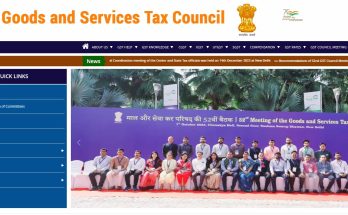Freelancing has emerged as a popular career option in India.
With the implementation of Goods and Services Tax (GST), there has been confusion about the applicability and rates of GST for freelancers.
GST on Freelancers

This article provides a comprehensive guide on GST for freelancers.
Overview of Freelancing in India
- Freelancing involves working on projects independently without being employed by any company.
- Freelancers offer specialized services like content writing, web design, marketing, etc.
- Income earned depends on the number and type of projects.
- Freelancing has become a lucrative career option, especially with the growth of online platforms.
When is a Freelancer Liable for GST Registration?
As per GST laws, a freelancer needs to register for GST if their annual turnover crosses the threshold limit.
The thresholds are:
- For normal states – ₹20 lakhs
- For Northeastern states – ₹10 lakhs
- For services classified under OIDAR – No threshold
OIDAR refers to Online Information Database Access and Retrieval services. It includes:
- Cloud services
- Online advertising
- E-commerce platforms
- Online gaming
- Online media subscriptions
- Software and app services
So freelancers offering such services have to register irrespective of turnover.
Voluntary GST Registration
Freelancers can also opt for voluntary GST registration even if their turnover is below the threshold limit.
Benefits of voluntary registration:
- Ability to claim GST paid on business expenses as input tax credit
- Seen as more credible by clients
- Needed for inter-state supply of services
Freelancers providing services to overseas clients also need to register as it qualifies as ‘export’.
GST Registration for Marketplaces like Upwork, Fiverr
Freelancers offering services via online marketplaces like Upwork, Fiverr, etc. have to follow the same GST rules.
- For foreign clients, it is the export of service
- For Indian clients, applicable GST rates have to be charged
The marketplace does not have any GST liability, it lies solely with the freelancer.
Composition Scheme
The composition scheme with lower tax rates is not applicable to freelancers providing services. It is available only to restaurant service providers.
Applicable GST Tax Rates
For most services offered by freelancers, the standard GST rate of 18% applies.
Different GST rates based on the type of service:
| Type of Service | GST Rate |
|---|---|
| Content writing, web design, marketing, HR services, etc | 18% |
| Accounting, auditing, bookkeeping | 18% |
| Legal services | 18% |
| IT software & development services | 18% |
| Architectural services | 18% |
| Technical testing and analysis services | 18% |
| Consulting services | 18% |
Process for GST Registration
Documents required:
- PAN Card
- Aadhaar Card
- Bank account proof
- Address proof
- Digital photograph
Steps for registration:
Step 1: New Registration Application
- Visit gst.gov.in and select New Registration
- Enter basic business details and submit
- You will receive a temporary reference number (TRN)
Step 2: Submit Details and Documents
- Login again using the TRN
- Fill complete details in Form GST REG-01
- Upload documents
- Submit application
Step 3: Verification and Grant of Registration
- Physical verification may be conducted
- Once approved, a certificate of registration will be issued
- This will include a 15-digit Goods and Services Taxpayer Identification Number (GSTIN)
The entire process may take about 5-7 working days if the documents are proper.
Consequences of Not Registering for GST
If a freelancer does not register for GST despite crossing the threshold, it can attract:
- The penalty of 10% of the tax due or Rs 10,000, whichever is higher.
- Unable to claim GST paid on business expenses.
- Loss of credibility among clients.
- Cannot issue GST invoices.
Hence, it is advisable to register within the prescribed timelines.
How to Calculate GST Liability?
GST Calculation:
GST Rate x (Turnover – Deductions)
Example:
- Turnover in the financial year: Rs 30 lakhs
- Standard GST rate applicable: 18%
- Deductions (expenses): Rs 5 lakhs
GST to be paid = 18% x (Rs 30 lakhs – Rs 5 lakhs) = Rs 4.5 lakhs
An online GST calculator can also be used to estimate tax liability.
Input Tax Credit for Freelancers
Like other businesses, freelancers are also eligible to claim Input Tax Credit (ITC) on GST paid on business expenses.
Common expenses on which ITC can be claimed:
- Laptops
- Software
- Office Supplies
- Internet charges
- Electricity bills
- Rent for office space
- Accounting and legal services
Proper invoices need to be maintained to claim ITC. This helps reduce the final GST burden significantly.
Penalties for Non-Compliance
If freelancers miss out on mandatory compliances, it can attract the following penalties:
- For late GST payment – Interest @18% plus late fee of Rs 200 per day
- For late filing of returns – Up to Rs 25,000
- For errors in filing – Rs 10,000 or 10% of the tax due, whichever is higher
Hence it is important to ensure timely compliance.
Filing GST Returns
Freelancers have to file 2 monthly (GSTR-1 and GSTR-3B) and 1 annual return (GSTR-9):
- GSTR-1: Furnish details of all invoices, bills, and other documents issued in a month
- GSTR-3B: Furnish summary of outward and inward supplies and pay tax
- GSTR-9: Annual return to reconcile overall GST liability
Calendaring due dates and using automated tools can help in ensuring timely filing. Failing to file returns can again attract heavy penalties.
TCS Under GST
E-commerce operators like Upwork, Fiverr, etc have to collect Tax Collected at Source (TCS) from freelancers at 1% of their earnings. This is only if the freelancer is GST registered.
If registration is not done, no TCS will be deducted.
Protecting Intellectual Property
Freelancers own certain intellectual property associated with their services. These can be protected through copyright, trademarks, patents, etc.
Registration of IP and having clear contracts help protect freelancer’ rights over their creations.
Conclusion
- With the growth of freelancing in India, GST implications have to be understood.
- Mandatory registration if turnover exceeds Rs 20 lakhs (Rs 10 lakhs for Northeast).
- Standard 18% GST is applicable for most services.
- Input tax credit available on expenses.
- Timely filing of returns is necessary.
- TCS collected by e-commerce operators at 1%.
- IP protections through copyright, trademarks, etc. advisable.
Complying with GST ensures freelancers remain on the right side of the law.
Frequently Asked Questions
-
Q1. Do freelancers need to pay GST?
Yes, if the annual turnover exceeds ₹20 lakhs (₹10 lakhs for Northeast), GST registration and payment is mandatory for freelancers.
-
Q2. What is the tax limit for freelancers?
The tax limit refers to the annual income threshold above which registration is required. This limit is ₹20 lakhs for most states and ₹10 lakhs for Northeastern states.
-
Q3. Is there GST on IT professionals?
Yes, freelancers offering IT services like software development, app building, data analytics, etc. have to register and pay 18% GST once their annual turnover crosses the threshold limit.
-
Q4. Can freelancers avoid tax?
No, if the turnover threshold is exceeded, GST registration and payment is legally mandatory for freelancers. Not doing so can attract heavy interest, penalties, and other consequences.
-
Q5. How do freelancers register for GST?
GST registration for freelancers is done online via the government GST portal – gst.gov.in. After submission of details and documents, a 15-digit GSTIN is issued which has to be included on invoices.
Also Check:


